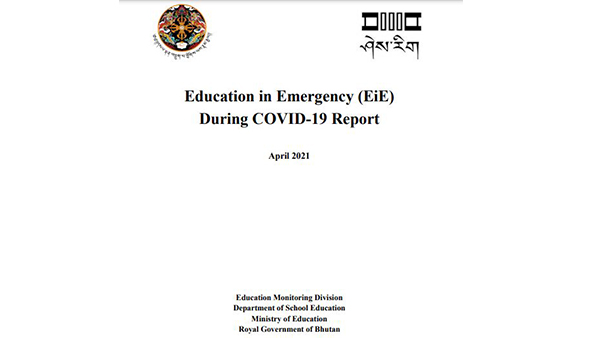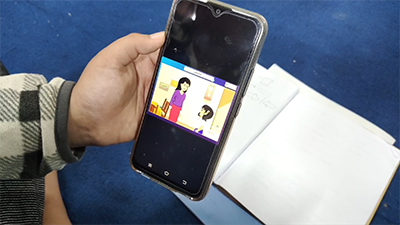 Going by the education ministry’s recent Education in Emergency report, most students found online learning challenging. Moreover, it could not replace face-to-face teaching with limited resources which affected the quality of education.
Going by the education ministry’s recent Education in Emergency report, most students found online learning challenging. Moreover, it could not replace face-to-face teaching with limited resources which affected the quality of education.
As schools remained closed amid the pandemic, the ministry initiated teaching online using social media, self-instructional materials, video and radio lessons.
As per the report, learning online was challenging for both students and teachers because of the lack of good internet connectivity. At the same time, it was expensive as many students had to buy phones or tablets and recharge data.
Zhemgang dzongkhag reported the highest number of students having difficulty learning online. The reasons given by the dzongkhag were poor and weak mobile network coverage and issues with phone storage, which did not support the Google Classroom application.
The report recommended improving internet connectivity and making it affordable for effective and efficient online learning.
The report also revealed that the lessons delivered did not cover all the subjects and were not comprehensive. Moreover, lessons developed for general students did not help students with disabilities. And so, schools with Special Education Needs programmes had to improvise their own teaching-learning materials.
 More than a hundred thousand students accessed lessons through various social media apps. Wechat was the most popular App used by students to access lessons.
More than a hundred thousand students accessed lessons through various social media apps. Wechat was the most popular App used by students to access lessons.
Lack of ICT knowledge and skills of both teachers and students was also a challenge in effective teaching and learning. Limited knowledge on cyberbullying among parents and students was a threat to students spending most of their time online.
Dzongkha teachers across the nation reported difficulty in teaching online. They hardly found any teaching-learning materials online. Besides, students were not able to view files when they did not have Dzongkha software installed on their devices.
Teachers across the nation raised concerns over students’ assignments. The standard of assignments submitted by the students was too high for their level which was evident that they did not write their assignments.
Parents across the nation reported that their children were mostly distracted by online games, videos and social media. On the other hand, more than 80 per cent of the students said their interest in studies was affected as a result of school closure.
Meanwhile, as per the report’s findings, despite being challenging, online lessons opened opportunities for increased interactions between parents and their children, thereby enhancing bond and trust.
The education monitoring division under the education ministry conducted the study to find out the implementation of Education in Emergency during the pandemic by examining the effectiveness, challenges and exploring the way forward.
Sonam Pem












